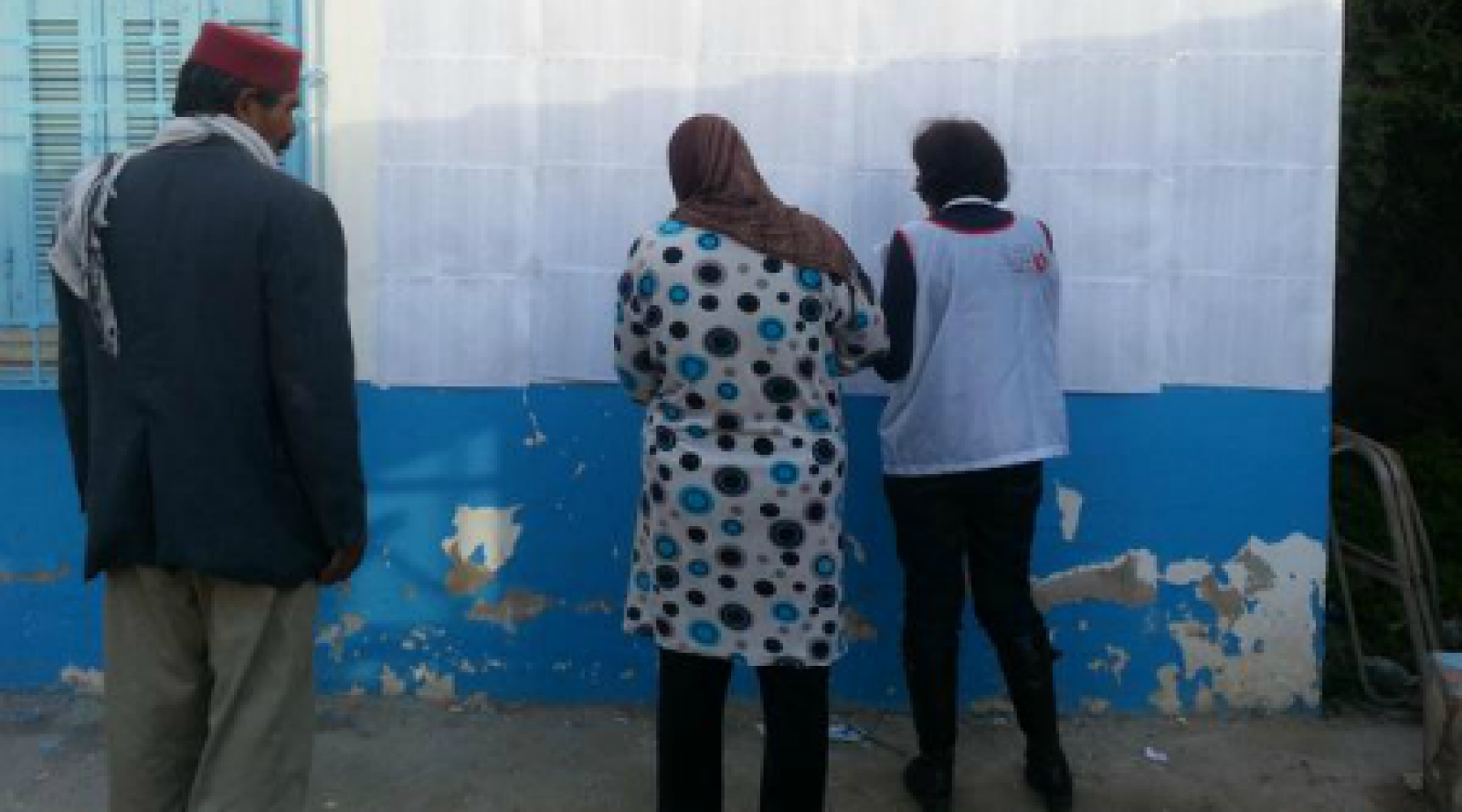
SHARE
For the first time, Tunisians freely elected a parliament and president in three national elections in 2014. A new round of focus group research conducted by NDI shows that citizens in Tunisia view these elections as a successful step in the country’s transition to democracy.
The research, conducted January 22 to 29 with 133 participants from four cities, including Tunis, Jendouba, Sousse and Medenine, built on 11 previous rounds of public opinion research led by NDI.
“Voting is a right and a duty. I have to vote and choose because if I don’t choose, they will choose for me. If I don’t choose, I don’t have the right to criticize. If I have chosen a candidate on the basis of a platform, and that candidate doesn’t keep a promise, I can protest and express my dissatisfaction.”
- 66-year old retired male focus group participant
Responses indicated that those who participated in the elections were driven by a sense of civic duty and a desire to change the country for the better, which resulted in voter turnout close to 68 percent for the parliamentary elections and 60 percent for the presidential polls. According to participants, voters took their responsibilities seriously, examining candidates’ positions and past experience.
Participants also credited the success of the historic elections to Tunisia’s independent election commission, the High Independent Authority for Elections (Instance Supérieure Indépendante pour les Élections - ISIE) and its ability to organize a credible process that allowed Tunisians to freely express their will.
“The basis for our democracy had been the democratic transition. Now that we are past this phase, we are beginning the process of democratic legitimacy.”
- 43-year old employed male focus group participant
While participants remain committed to the democratic process, they express their frustration with the perceived lack of progress on key issues that affect their daily lives. They said the newly-elected government needs to prioritize citizens’ concerns regarding unemployment, inflation, corruption and security to continue moving the country in the right direction. Other findings include:
Electoral Process
-
The ISIE’s voter education strategy of providing election information via text, television announcements and public awareness efforts contributed to voter confidence in the electoral process. However, some respondents said they wanted to see more outreach to encourage greater citizen participation in the elections.
-
Tunisian and international observers ensured the integrity of the electoral process and contributed to the success of the elections. On the other hand, inflammatory and partisan rhetoric in the media was seen as having negatively affected the process.
- Participants hope that future electoral campaigns will be based on credible and specific policy platforms, that candidates will engage voters directly and that the electoral process will involve more young people. Respondents reacted unfavorably to overly partisan campaign rhetoric and lack of transparency in campaign spending.
Democracy
-
Political freedoms that resulted from the revolution must be celebrated and protected, according to respondents; however, for many participants, improvement depends on changing citizens’ attitudes to achieve greater respect for law, order and fellow citizens. Many participants see changes in attitudes as essential for attaining lasting democracy.
- The majority of participants believe Tunisia is making progress toward democracy, but this goal has yet to be fully realized. Participants feel that their understanding of democracy still needs to be developed.
Governance
-
Participants hope that new ministers will be proactive and institute needed reforms. Participants reported that they are eager to see immediate action by the new government.
- The majority of participants report that high unemployment and inflation are their top economic concerns. Respondents are frustrated with persistent corruption and concerned about its impact on the economy. Terrorism and crime are prominent concerns for participants who link insecurity to a lack of economic opportunity.
Previous rounds of research included tracking Tunisians’ attitudes on the electoral process, democracy and governance, and their priorities looking ahead. The research was conducted through moderated discussions with the participants, and analyzed by NDI staff for trends and themes.
Published on March 17, 2015


